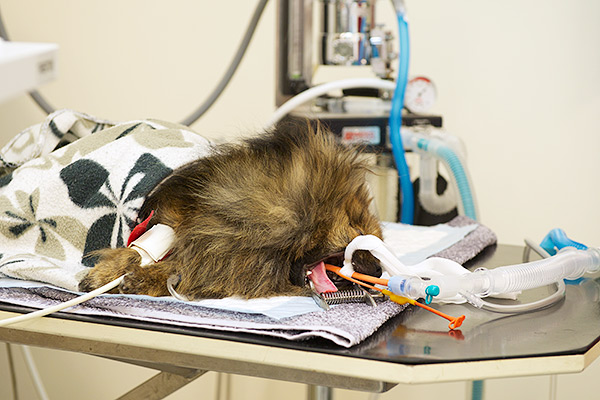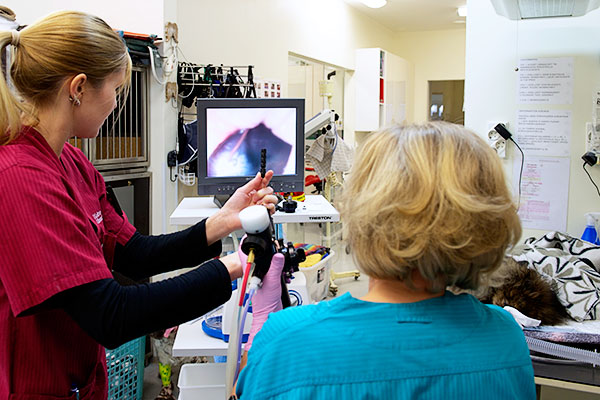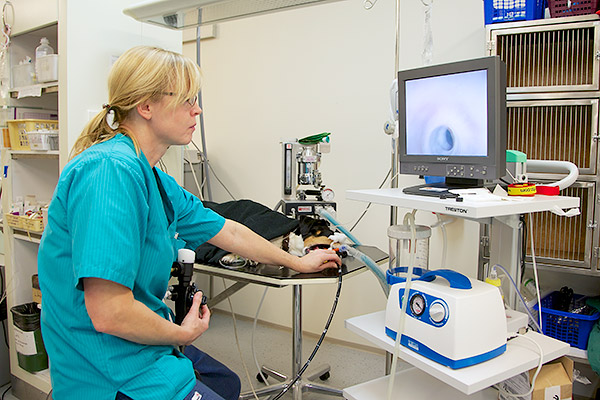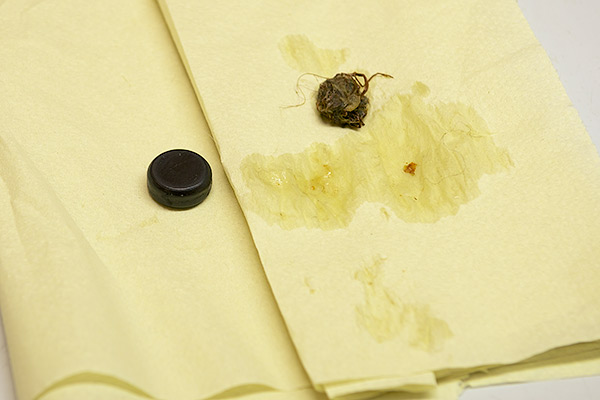Avoinna arkisin ma-to 8-20, pe 8-19.
La päivystys ajanvarauksella klo 9-17.
Internal visual examinations of cats and dogs are always carried out with the patient under narcosis. This is why the preparation for it has to be as for any narcosis, namely with a 12-hour fast. Other instructions may be given to specific patients, for instance concerning ingestion of liquids or evacuation of excretion.

Before the examination, the necessary basic tests will be carried out: blood tests and X-rays will always be taken. Patients with stomach symptoms will usually respond to a diet, and it is worth trying changes before the internal examination. For some patients, a thorough basic investigation will result in an adequate diagnosis without the need for an internal examination. Internal visual examinations will be done on chronic patients, or ones who do not respond to care or a diet, and for instance patients for whom it is necessary to extract samples in order to determine the precise care. Additionally, this examination can be used to look for foreign objects.

An endoscopy of the nose – or of nasal and para-nasal sinuses – is performed on patients who have a chronic runny nose or nose bleeding. With the internal examination we look for foreign objects, tumours or changes in the mucous membrane which are typical of inflammations or fungal infections and of which samples are taken. With a bronchoscopy it is possible to clarify the causes of chronic coughing: biopsy and brush samples of the mucosa are taken for cytological and bacteriological testing. A gastroscopy will clarify illnesses of the oesophagus and the stomach, such as foreign objects, inflammation reactions, ulcers or tumours. Imaging with a contrast agent will better clarify the workings of the stomach-digestive tract (cf. contrast medium imaging). A typical patient is a chronically vomiting dog or cat which has not responded to medication and the diet normally recommended for the symptoms.

A colonoscopy may be performed on patients suffering from chronic colic and blood in stool. The patient prepares for the examination by emptying the bowel and following fasting instructions.
For vague stomach pain or in clearly intestinal/abdominal cavity problems a visual examination is usually worthless, and we often recommend laparotomy (i.e. surgery that opens the abdomen) to clarify the reason for the symptoms. On such an occasion it will also be possible to verify the state of the liver, pancreas and the spleen, and also take samples from them, or in case of necessity perform there and then a surgical procedure to improve the functionality of the organ.
